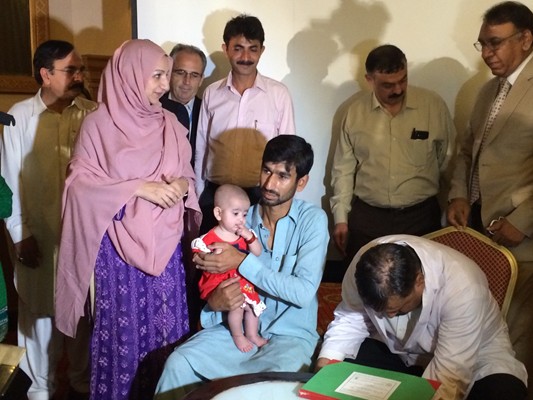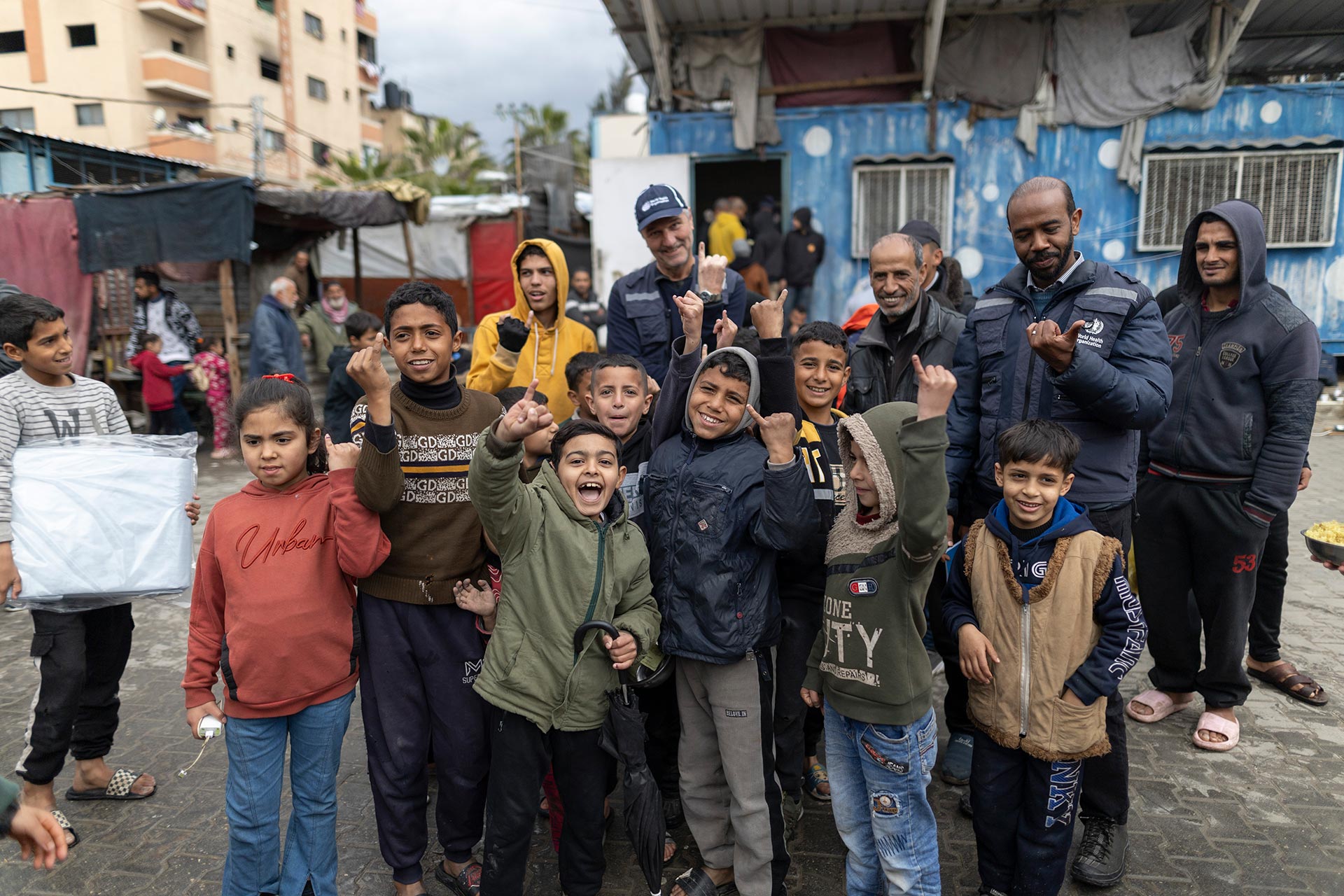
Pakistan has become the second polio-endemic country to introduce the inactivated polio vaccine into the country’s routine immunization schedule, a move which will benefit more than four million children per year across the country. With more than half of the global birth cohort now receiving IPV due to the largest globally synchronised vaccine introduction in history, the addition of Pakistan’s children to this number will help to speed Pakistan towards stopping the virus for good.
Pakistan is one of only three countries in the world where polio remains endemic. Nigeria, which recently marked one year without a case of wild polio, introduced the vaccine in February of this year, and Afghanistan is due to begin using IPV in the coming weeks. While every country in the world is set to introduce IPV, endemic countries will greatly benefit from the boost in immunity that new evidence has clearly demonstrated that adding one dose of IPV to OPV offers to children as they fight to end transmission of the virus. Aziz Memon from Rotary International emphasized that “… adding at least one dose of IPV to the routine immunisation schedule is the best possible way to protect your children from life-long polio paralysis, while the disease is being eradicated from the remaining endemic hotspots.”
The universal introduction of IPV is part of the Polio Eradication and Endgame Strategic Plan 2013-2018. It helps to build a solid base-layer of immunity against polio, and will help to secure the gains made against the disease by contributing to stronger immunisation systems, so that every child in every country has access to vaccines. “The introduction of IPV is a major landmark as it would strengthen our efforts to fight polio and eventually eradicate it from our country and the world. We are confident that this introduction will give a boost to routine immunization in the country,” said Mrs Saira Afzal Tarar, Minister of State, Ministry of National Health Services Regulation and Coordination.
Pakistan has made significant progress in the fight against polio with a 75% reduction in the number of cases of wild poliovirus compared to the same period last year (from 115 cases to 29 cases). This decline shows that, despite major challenges and remaining hurdles in some provinces, Pakistan is getting closer to polio eradication. However, the country still accounts for more than 80% of cases worldwide so far this year, and many children in high-risk areas of the country remain un- or under-immunised.
As well as its use in routine immunization, the ability of IPV to boost immunity when used alongside OPV is being utilized in polio campaigns. In critical areas of the Federally Administered Tribal Areas such as South Waziristan and Khyber Agency, which were which were not consistently reached due to insecurity over the last few years, IPV campaigns are ongoing targeting children between 4 and 24 months. The children of families returning to North Waziristan, South Waziristan and Khyber Agency following displacement are also given IPV to increase their immunity as they are a particularly vulnerable group. While OPV is still the only vaccine that can end transmission of the virus, IPV can provide a boost to speed up the development of immunity to all types of poliovirus.
“The introduction of IPV is a result of significant progress for our country in term of strengthening routine immunization,” said Dr. Syed Saqlain Ahmad Gilani, National Program Manager, EPI. “We are another step closer to ridding the world of the terrible disease of polio, and it is a result of our efforts to improve the current state of routine immunization in the country.”
Read more about the global status of IPV introductions here.
The Bill & Melinda Gates Foundation, Norway, and the United Kingdom are generously supporting the introduction of IPV in routine immunisation schedules in 72 Gavi-supported countries, while Canada is supporting its introduction in other lower-middle income countries. The top ten government donors to GPEI include the USA, the UK, Japan, Germany, Canada, the Netherlands, Norway and Australia.
The Global Polio Eradication Initiative (GPEI) is led by national governments and spearheaded by the World Health Organization (WHO), Rotary International, the US Centers for Disease Control and Prevention (CDC), and the United Nations Children’s Fund (UNICEF), with the support of the Bill & Melinda Gates Foundation.
Since its launch at the World Health Assembly in 1988, the GPEI has reduced the global incidence of polio by more than 99%. The GPEI receives financial support from governments of countries affected by polio; private sector foundations, donor governments, multilateral organizations, private individuals, humanitarian and nongovernmental organizations and corporate partners.



